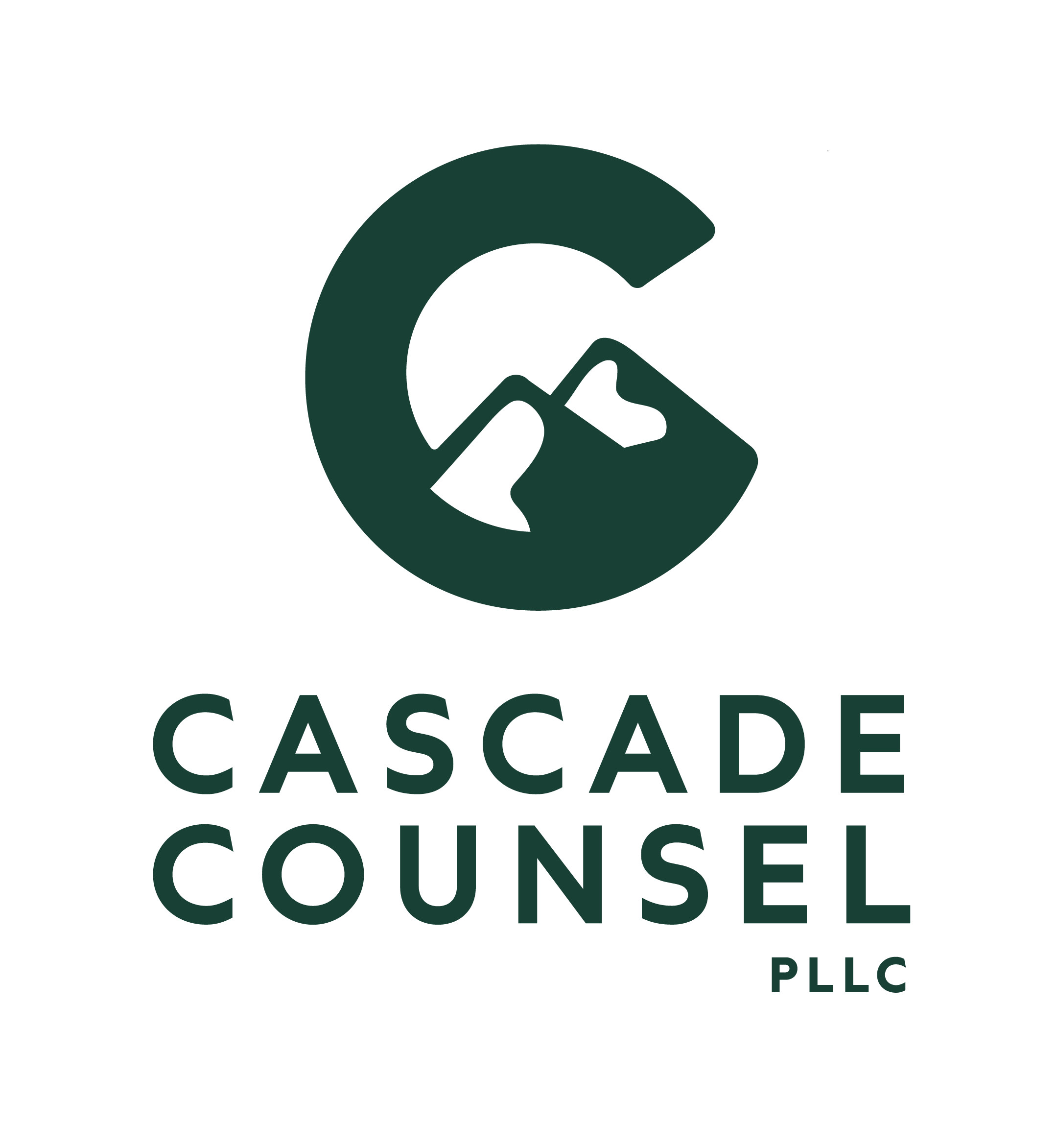Entity Formation Entity Structuring
Smart Business Entity Structuring
Choose the right legal foundation for your real estate or small business venture with guidance from Cascade Counsel.
Choosing the right legal structure for your business is one of the most impactful decisions you’ll make—shaping everything from tax strategy to liability protection. This page breaks down the most common types of business entities, outlines default scenarios, clears up common misconceptions, and introduces alternative structures worth knowing.
Selecting the Right Entity Structure
Selecting the appropriate business structure for your rental property or entrepreneurial venture is a crucial decision that impacts asset protection, tax consequences, and day-to-day management. There are multiple entity types, and each offers different benefits depending on your goals and the nature of your business.
Common Business Structures for Real Estate and Small Business Owners
The four most utilized structures for real estate and small business are S Corporations, C Corporations, Partnerships, and Limited Liability Companies (LLCs). The best choice will depend on liability exposure, management needs, tax treatment, and growth plans.
S Corporations
S Corporations can offer significant tax advantages. Rather than paying corporate income tax, profits and losses flow directly through to shareholders, who report these amounts on their personal tax returns. This “pass-through” structure avoids double taxation.
In Washington, single-owner S Corps (including married couples) can pay themselves a reasonable salary taxed as ordinary income, while the rest can be distributed as profits, potentially taxed at lower capital gains rates resulting in potential tax savings. Most businesses achieve this structure by forming an LLC and electing S Corp tax treatment. This approach allows owners to enjoy the benefits of easier and more flexible management found with LLCs while retaining tax efficiency of the S Corp.
Note: True S Corps have shareholder restrictions and some operating restrictions apply for LLCs making elections too. Certain trusts, corporations, and non-resident aliens cannot be shareholders, which may limit investor options.

C Corporations
A C Corporation is another viable option for real estate investment, offering its own distinct set of pros and cons.
C Corporations allow for retained earnings—meaning the business can reinvest profits instead of distributing them. This can be useful for businesses with longer growth horizons or high operational costs.
However, C Corps face double taxation unless structured carefully. Profits are taxed at the corporate level, and dividends are taxed again when distributed to shareholders. C Corps are also subject to stricter governance requirements and, contrary to common belief, are not capped at 100 shareholders unless electing S Corp status. Foreign ownership is allowed, which can benefit businesses seeking international investment.

Partnerships
Partnerships offer flexibility and collaboration potential. They’re attractive for shared ventures, especially where operational roles or capital contributions vary. However, the risks are significant, especially where partners have not agreed in writing how to resolve disputes. In a worst case, some partners may even bear unlimited personal liability. Disputes arising from differences in oral understanding can also unnecessarily strain the business.
Certain partnership types (like limited partnerships or LLPs) can reduce liability, but many landlords and small business owners prefer an LLC for better protection and easier management.

Benefits of a Limited Liability Company (LLC)
An LLC is often the go-to structure for small businesses and landlords. It provides liability protection while offering operational and tax flexibility. Profits flow through to members’ personal taxes, and members aren’t personally liable for the company’s debts or legal obligations—provided the entity is properly formed and maintained.
For many, a single-member LLC taxed as an S Corporation offers the best of both worlds: liability protection and reduced self-employment tax. However, forming an LLC does require state filing, annual reports, and compliance obligations—so it’s critical to set it up correctly from the start.
If You Do Nothing: Sole Proprietorships and General Partnerships
Many people operate by default as sole proprietors or general partnerships without realizing the risks. These informal arrangements do not provide any liability protection—your personal assets could be at risk in the event of business debt or legal claims.
Sole proprietorships are the default for individuals, while general partnerships apply automatically when two or more people go into business together without formalizing an entity. Both are easy to start but offer no legal separation between the business and its owners.
Dispelling Common Misconceptions
Myth: Forming an LLC is enough to protect you.
Fact: Your LLC must be properly formed and maintained—failure to separate personal and business finances or to file required reports can pierce the “corporate veil.”
Myth: S Corps are only for big businesses.
Fact: Small businesses can often benefit from an S Corp election—especially when income is stable and distributions exceed reasonable salary levels.
Myth: All entities are taxed the same.
Fact: Tax treatment varies widely—choosing the wrong structure can lead to overpaying taxes or limiting growth options.
Other Structures: B Corps, Nonprofits, and More
Some entrepreneurs and property owners may benefit from less conventional structures:
Benefit Corporations (B Corps): These for-profit entities incorporate social or environmental missions into their legal goals and governance. Washington allows B Corp formation for companies wanting to balance purpose and profit.
Nonprofits: Ideal for charitable or educational ventures, nonprofits enjoy tax exemptions but are restricted from private profit-sharing.
Trust-Owned Entities: Useful in estate planning or for special tax strategies, trusts can own LLCs or corporations for greater flexibility and control.
Series LLCs and Holding Companies: Advanced tools for separating liabilities across properties or business lines, especially for seasoned investors.
These structures require additional planning and legal nuance—Cascade Counsel can help determine whether they’re appropriate for your goals.
Disclaimer
This article is provided for informational, educational, and marketing purposes only and does not constitute legal advice. The content is current as of its publication or last review and may not reflect the latest legal developments. Do not rely solely on this information—consult a qualified attorney regarding your specific situation.
Secure the Right Structure for Long-Term Success
Every business has different needs, and choosing the wrong structure can create future roadblocks. Cascade Counsel will help you weigh the pros and cons of each option, form your business properly, and ensure you’re protected from day one. Reach out today for a personalized consultation and take the guesswork out of your business formation.
